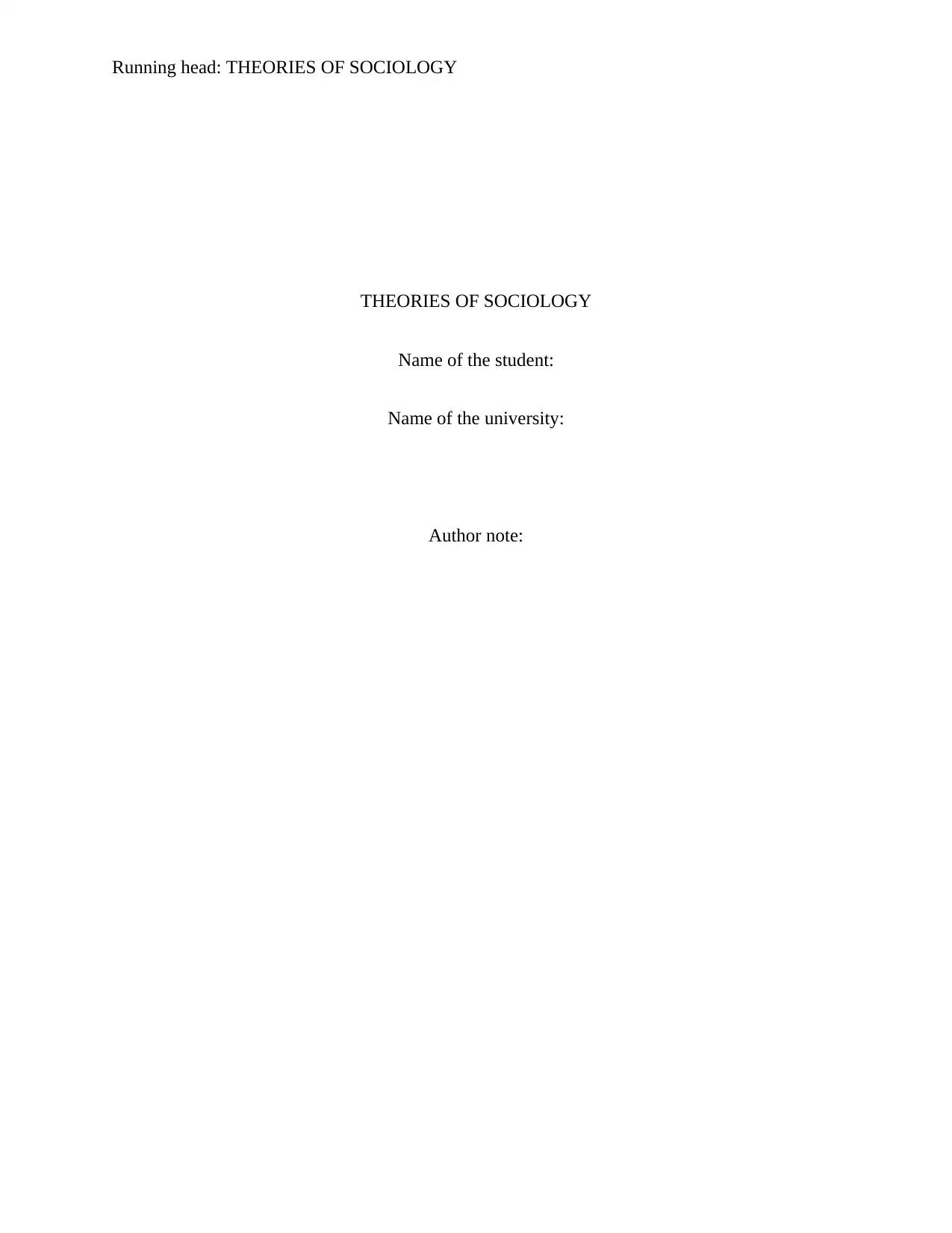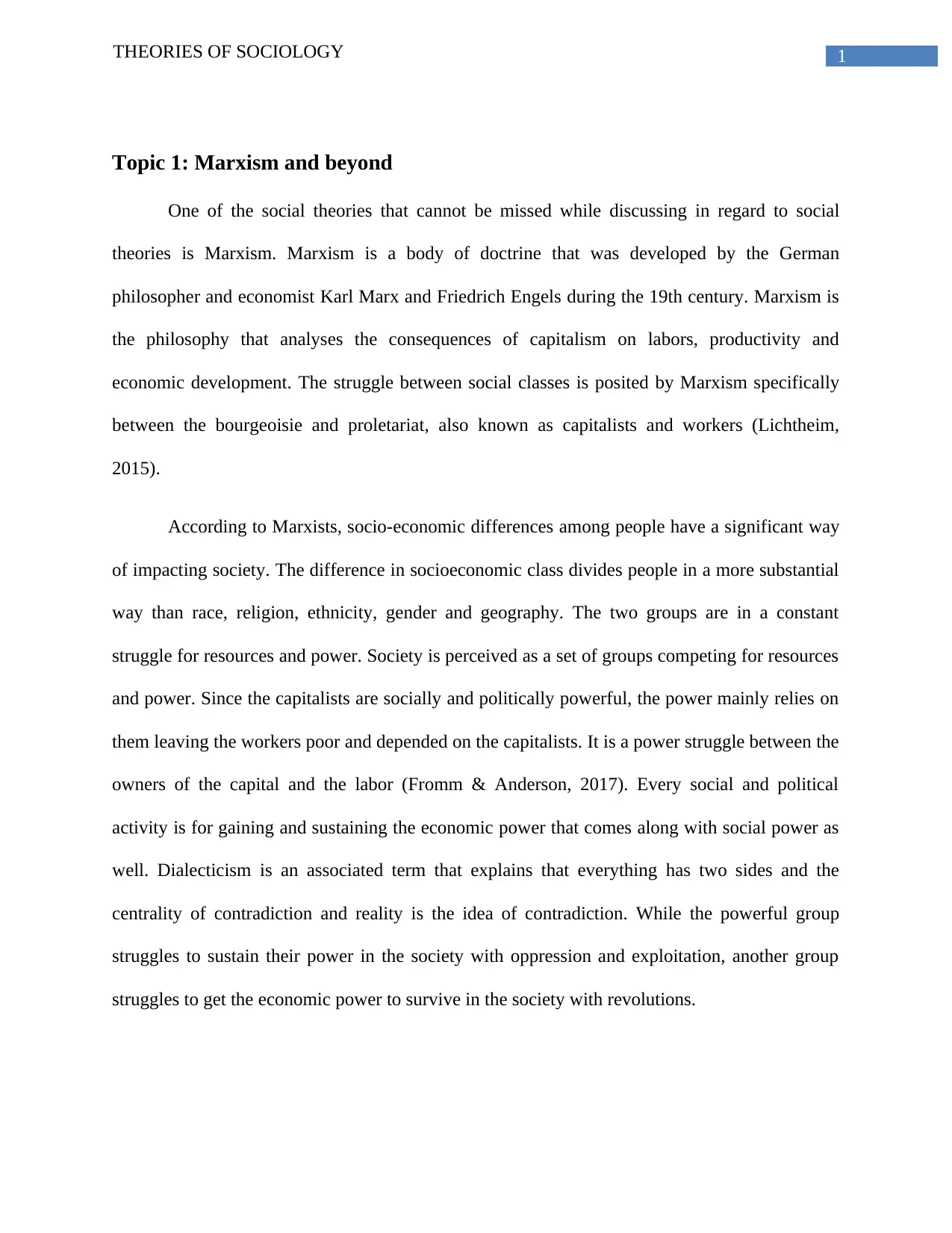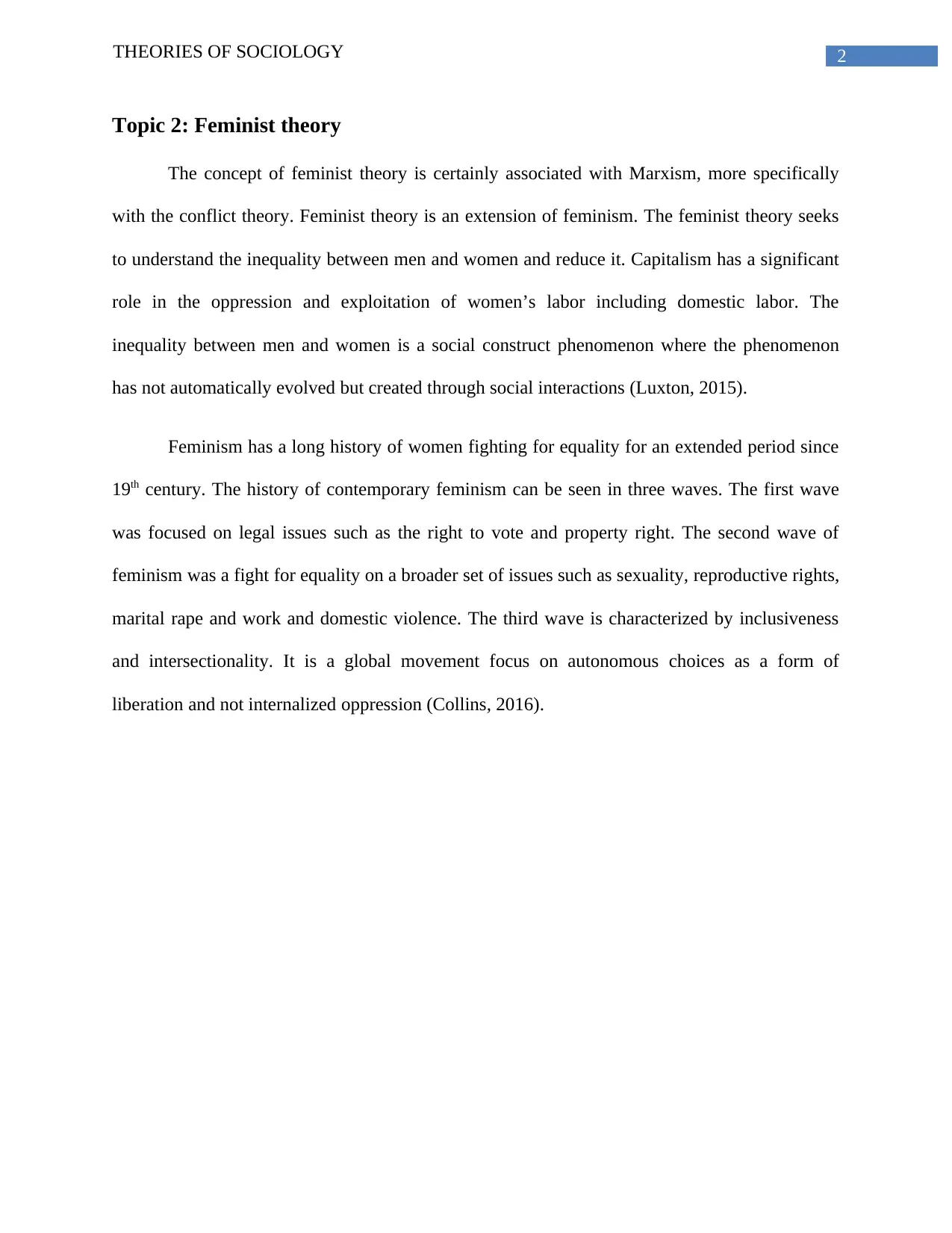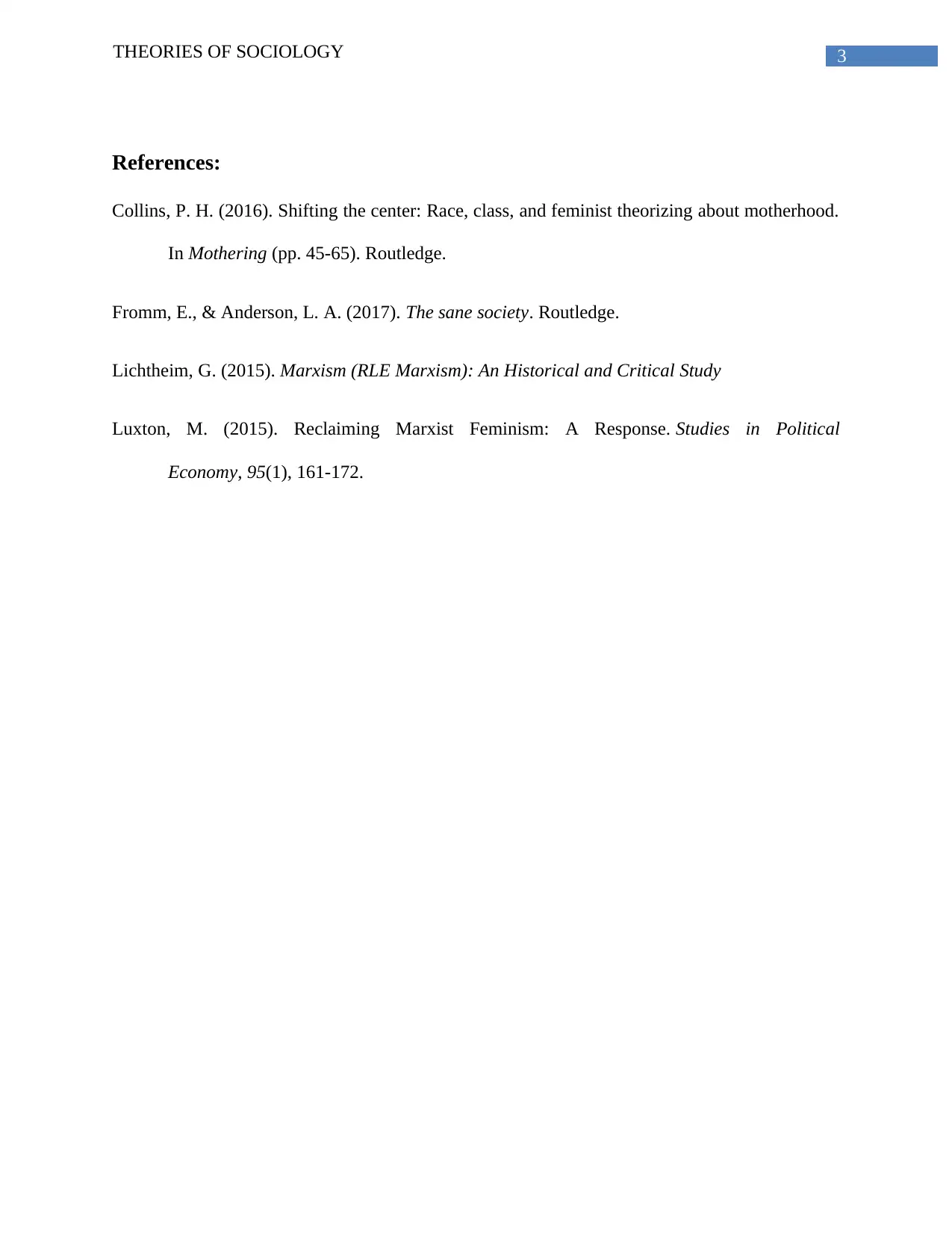102179 Theories of the Social: Marxism and Feminist Theory Essay
VerifiedAdded on 2023/01/20
|4
|630
|40
Essay
AI Summary
This essay provides an overview of Marxism and feminist theory within the context of social theories. It begins by explaining Marxism, highlighting its focus on the struggle between the bourgeoisie and the proletariat, and the impact of socio-economic differences on society. The concept of dialecticism is also discussed, emphasizing the constant struggle for power. The essay then transitions to feminist theory, linking it to Marxism and conflict theory, and exploring the inequality between men and women as a social construct. It touches upon the history of feminism, dividing it into three waves, each addressing different aspects of inequality. The essay concludes by emphasizing the importance of understanding these theories for analyzing social phenomena.
1 out of 4











![[object Object]](/_next/static/media/star-bottom.7253800d.svg)